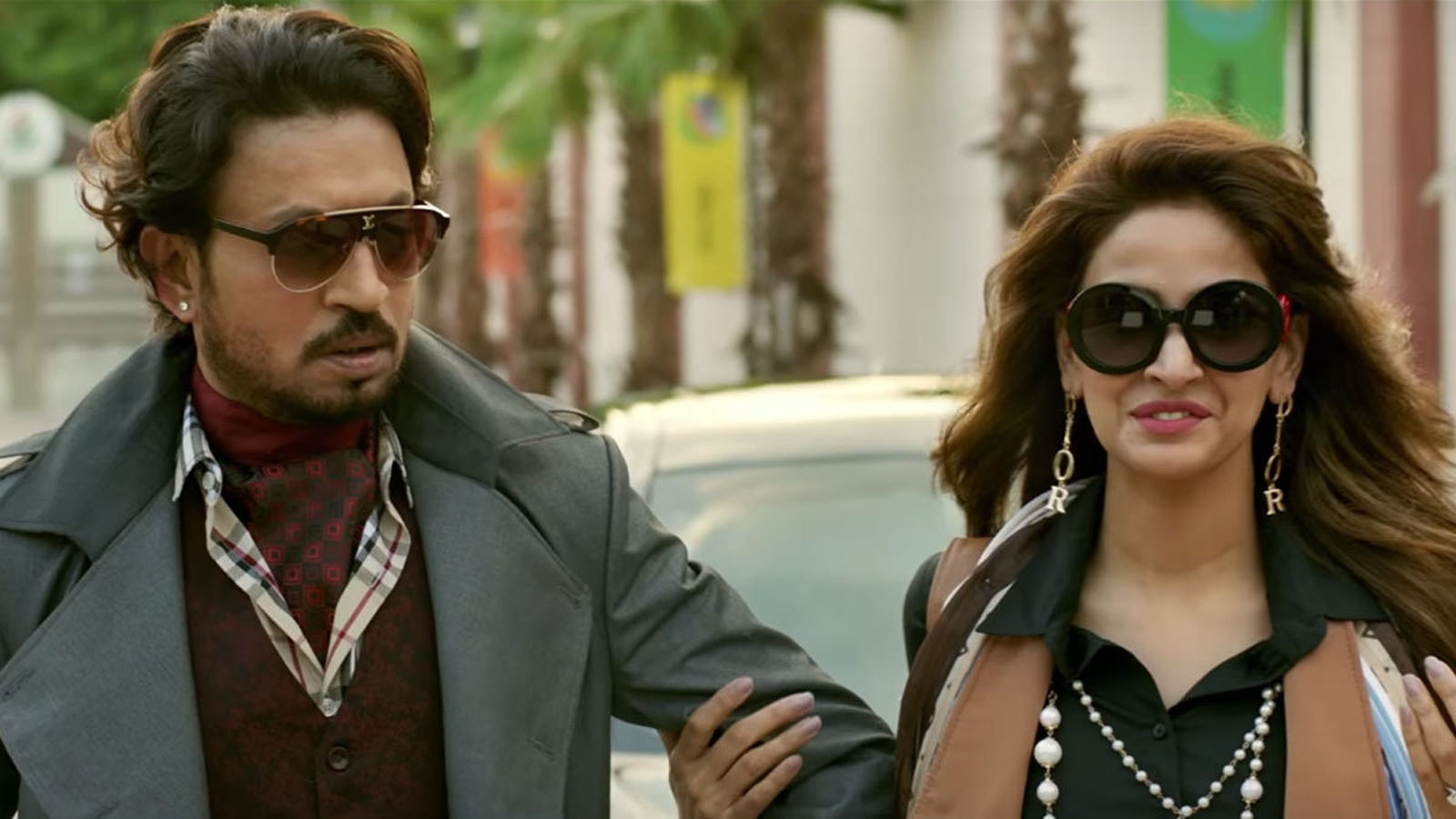

MUMBAI: Filmmaker Saket Chaudhary, who has previously dealt with the funny side of romance and marriage, trains his comic lens on India's education system in his third film. The protagonist in "Hindi Medium" is a rich businessman whose daughter is denied admission to schools because she and her parents cannot speak English.
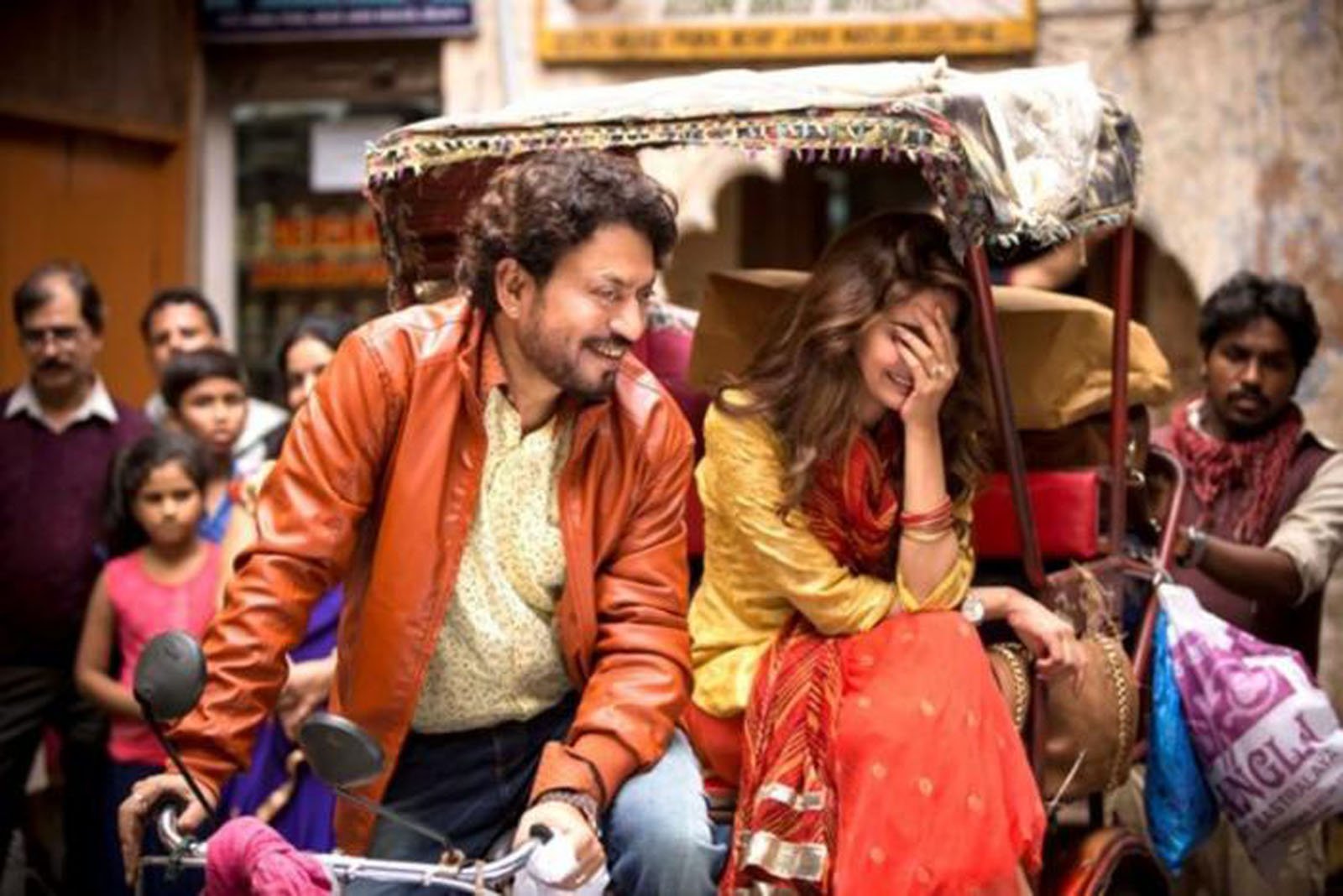
The film, which has Irrfan Khan and Saba Qamar in the lead, will release in India on May 12. Chaudhary spoke to Reuters about the film and the Hindi-English divide in India's education system.
Q: Where did the idea for "Hindi Medium" come from?
A: Around the time that we were writing "Shaadi Ke Side Effects", my co-writer Zeenat Lakhani came across an article about this father whose daughter's admission was rejected because he only had a BA (degree). Just to get his daughter into a good school, he enrolled himself into an MBA programme. That is when the idea hit us that parents will do anything to get their child into a good school.
_12.jpg)
Q: How did the Hindi-English theme come into the story?
A: What every parent wants for their child is good education. To a lot of parents in this country, a good education is an English education. A family who themselves have not had that privilege of being fluent in English would be desperate to get that for their daughter. We did meet a lot of families who suffered this prejudice. They went to government schools, didn't learn English until the 5th or 6th grade and were never particularly fluent. When they came into the job market, despite their qualifications, they couldn't get a job. We met someone who had an MSc (Masters in Science) degree, but the only job he could find was that was a security guard at a mall. That made us realise how privileged people who know English really are.
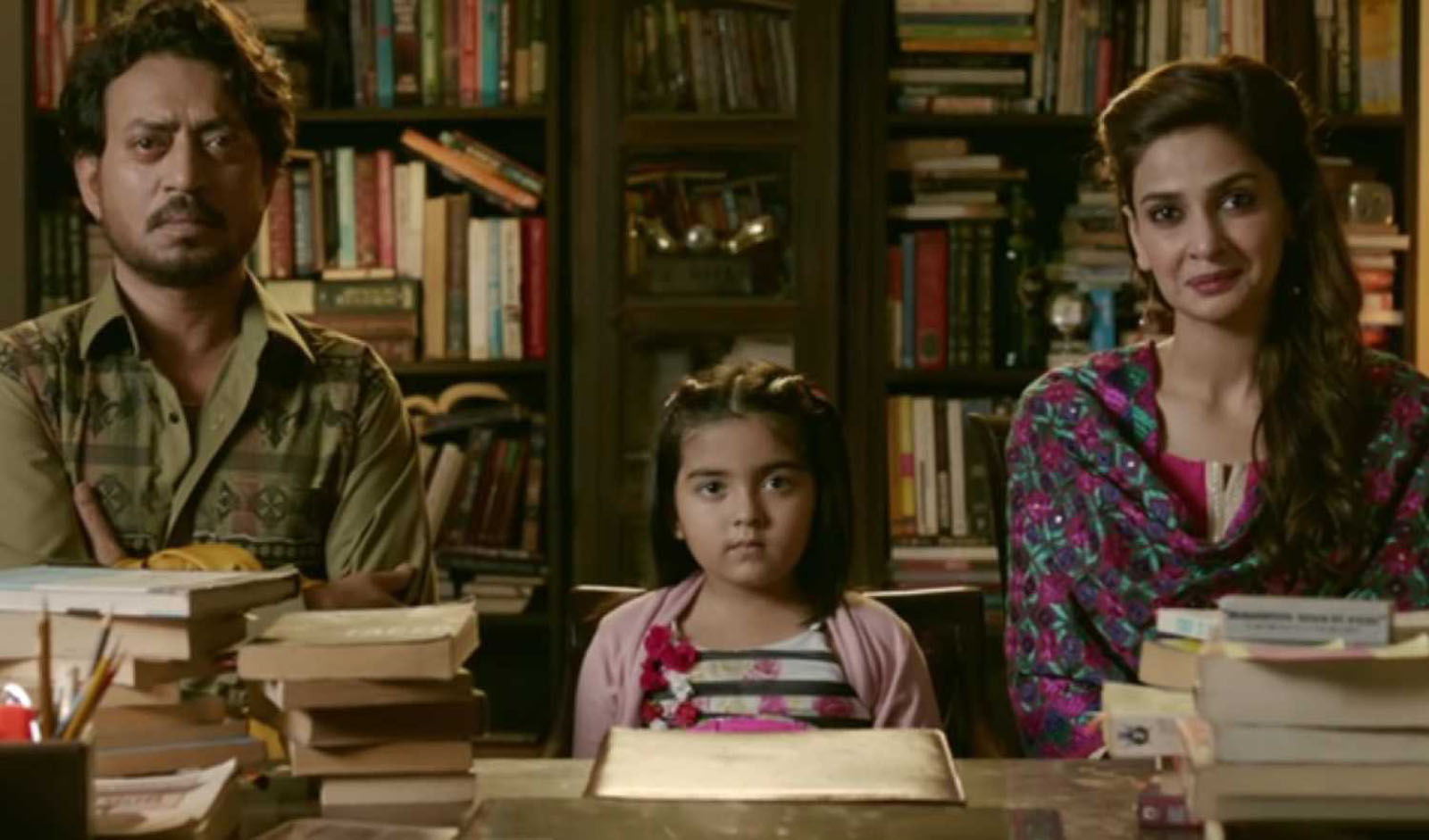
Q: There are two themes which seem to be reflected here – the struggle to get into a good school and the insecurities connected to the English language. Which one did you want to focus more on in the film?
A: They are both interlinked. The idea is that any country needs to do is give every child an opportunity to grow. We may not grow up to be equal people but we have to start off being given equal opportunities. The fact that that opportunity is taken away right at the beginning is what we wanted to focus on. That education is divided into a private school education and a government school education, or a Hindi language education and an English language education. These differences stay with us and affect us for life.
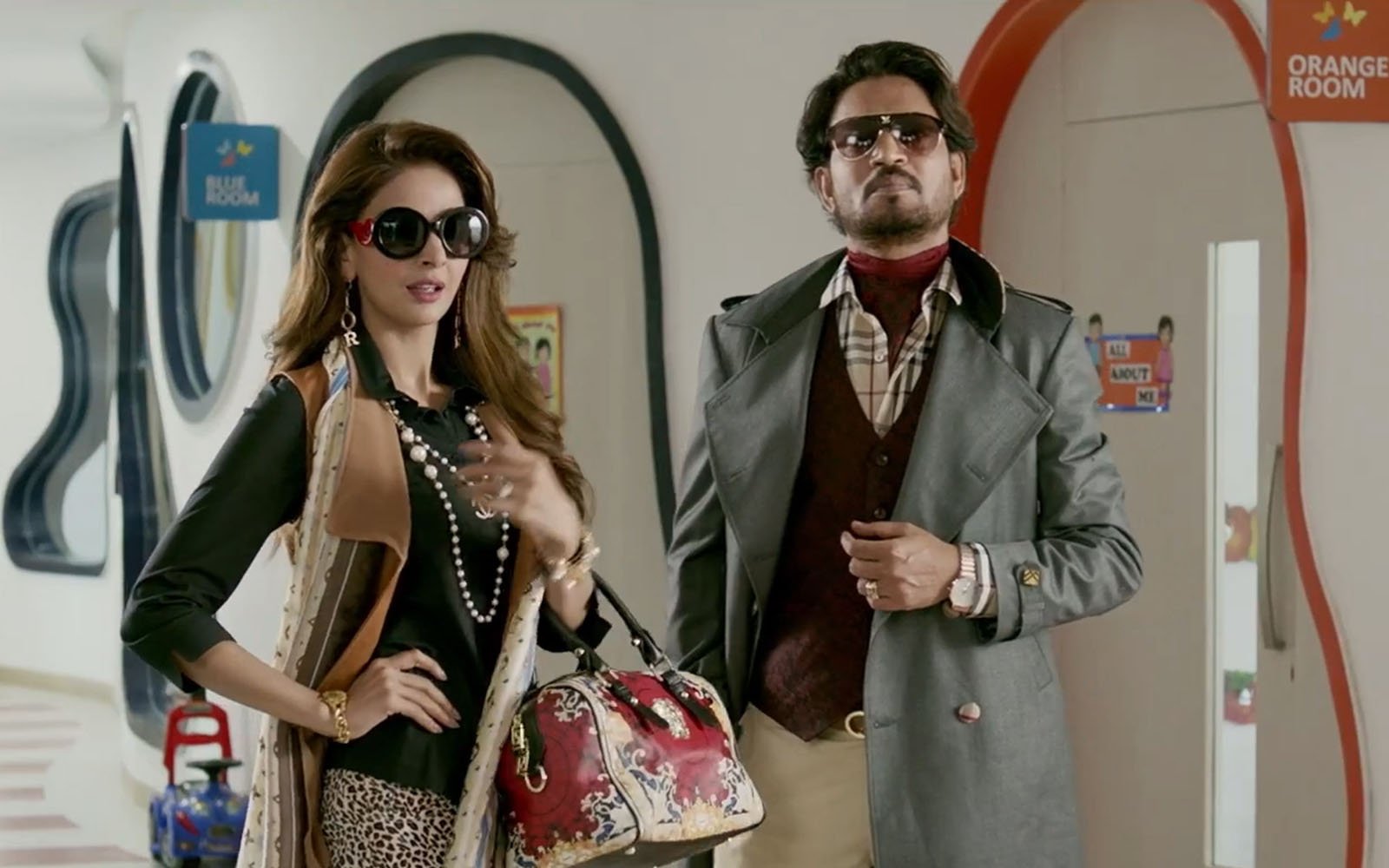
Q: What kind of humour are you aiming for?
A: We've been writing comedies for a substantial time now. When you look at subject matter, you know what is intrinsically funny. To the parents, it might not be funny, but to someone on the outside, it is hilarious - the lengths that people will go to for admission into a good school. There is somebody in my family who had twins. They both got into different schools and the family acted as thought it was a huge tragedy. From the outside, it was very funny though.
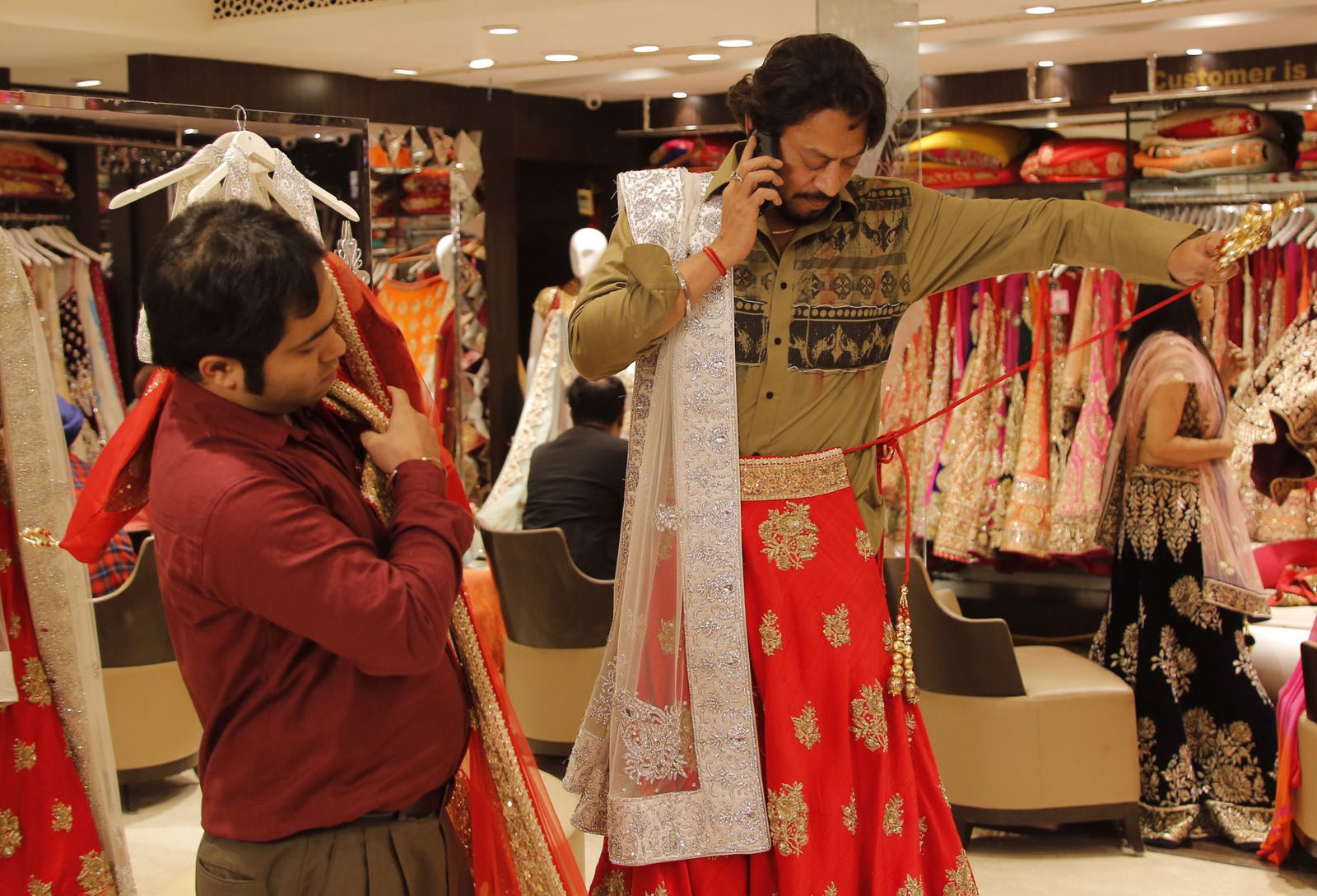
Q: Was Irrfan always your first choice for the lead role?
A: Not while we were writing the story. We didn't really have anyone in mind. But when we wrote the first scene, which had the lead character at his shop in Karol Bagh where he sells knock-offs of designer lehengas (traditional Indian skirt), we knew it had to be him. Irrfan is a great actor, but you got a sense of his comic timing in "Piku". The way he does comedy is that he is still a great actor who is imbibing his character and therefore making it funny. He is never playing for comedy.
